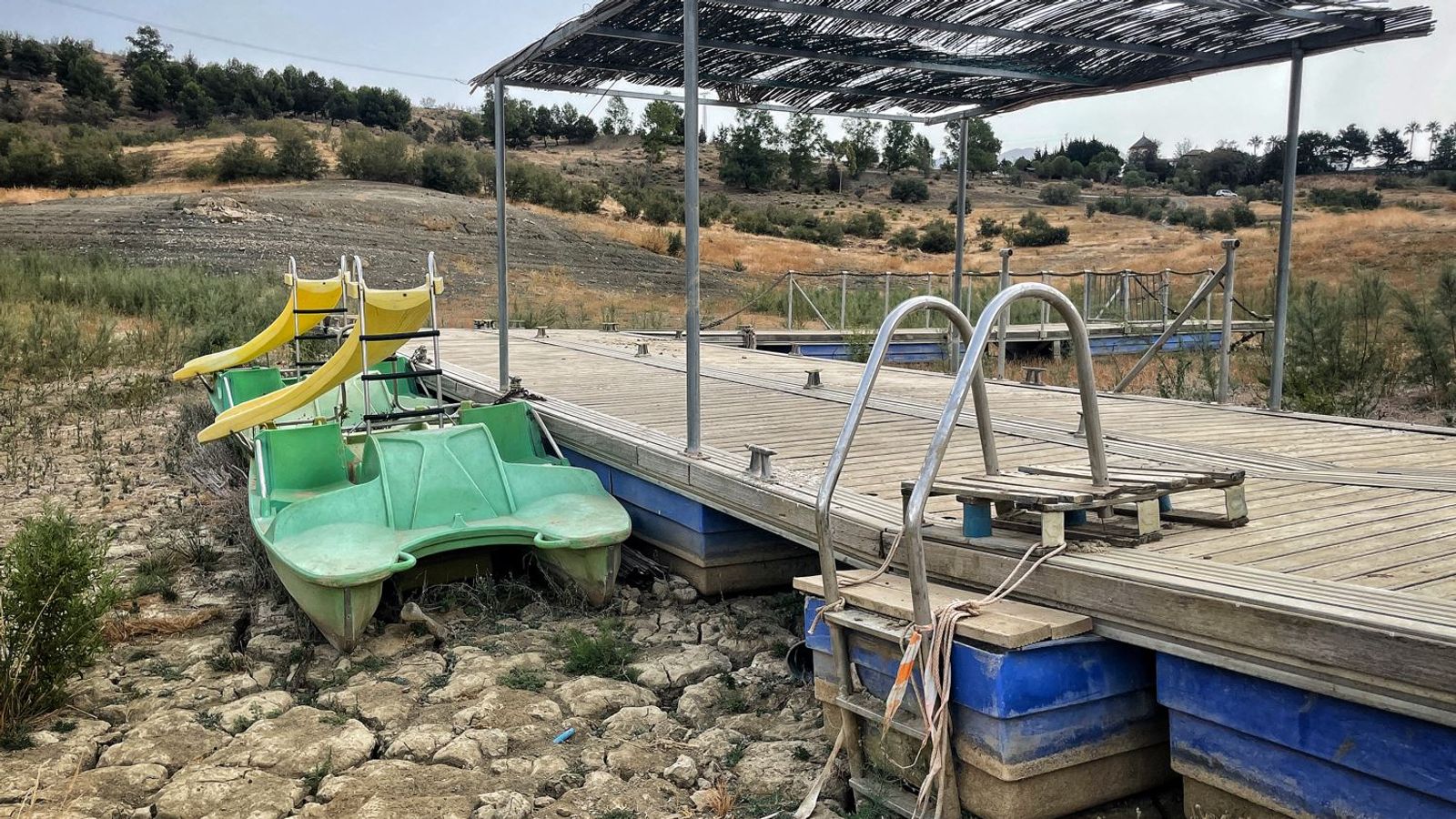The water levels at one of the largest reservoirs in southern Spain are on the brink of running dry – threatening tourism and farming livelihoods.
The receding of the water at the Vinuela Reservoir has shocked and worried nearby residents who are already labouring under restrictions designed to try to curb usage.
The reservoir is only at around 12% capacity after Spain had record high temperatures in July, amidst the driest spell in the country in more than 1,200 years.
The crisis has also prompted what’s been dubbed ‘water wars’, as worried communities argue over exactly what has led to this position.
In the Malaga area, it’s led to a fracturing of relationships, as environmentalists blame the water shortage on farmers who’ve switched to more lucrative tropical fruits which demand more water.
But the farmers are insistent the soaring temperatures and increasingly severe and long dry periods are brought on by climate change – and they are suffering the consequences.
43-year-old farmer Paco Marin told us that the farmers were at the forefront of acknowledging lifestyles had to change.
Firefighters from all over Europe battle ‘monster’ blaze in France as others burn in Portugal, Germany and Spain
British tourists in Spain will be ‘roasted’ after country passes strict air-conditioning rules, warns tourism chief
French man, 62, survives 16 hours in capsized boat in Atlantic Ocean before rescue ‘verging on the impossible’
“The fires, the droughts, they’re all caused by climate change but we as humans all cause this climate change so we have got to change.”
He’s farming avocados and mangoes as well as the more traditional oranges, lemons and olives. But the poor rainfall has meant his mangoes are half their usual size and he’s seen a drop in his income by about nearly a quarter over the past few years as a result.
He shows us his irrigation system which he’s installed and says is very efficient and doesn’t waste water.
But the ecologists believe the irrigation networks are contributing to the water drops and they want them banned along with more focus on recycling water and building a desalination plant in the area.
“They (irrigation systems) should be stopped,” Rafael Yus from the Ecologistas En Accion (Ecologists in Action) tells us.
“And the farmers should be encouraged to diversify and farm other fruits, not the tropical one.”
We’re standing on the bone dry bed of the Vinuela Reservoir where buoys are marooned still attached to their equally beached boats and anchors.
Elena Sanchis used to run a water adventure business here, but for the first time it couldn’t open this summer because the low water levels have made any adventures impossible.
Read more:
Firefighters from all over Europe battle ‘monster’ blaze in France
Wildfires across Spain amid heatwave with temperatures reaching over 40C
She believes the community and the authorities need to come together to try to work out a fresh approach to what is likely to become an increasingly difficult problem.
“The tropical fruit farming doesn’t take up so much water,” she said.
“I’ve done my research – and we need to recognise that the tropical fruits provide employment to about ten thousand people here. What’s going to happen to them if the tropical farming stops?”.
Spain is the main fruit and veg supplier to Europe and is the world’s leading supplier of olives – but with poor yields, those supply lines now look to be under threat.
Spain’s water crisis is likely to stretch far beyond its own borders.






















